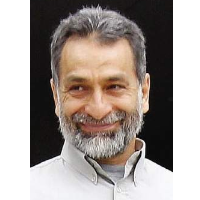Convicted of Funding Chechen Independence Group, Oregon Man Wins Retrial Due to FBI Misconduct
 Pete Seda (AP Photo)
Pete Seda (AP Photo)
Citing “significant errors,” a federal appeals court Friday voted 2-1 to reverse the 2010 criminal conviction of Pete Seda, an Oregon man accused of supporting terrorism by smuggling money to Chechen guerrillas at war with Russia, ruling that misconduct by federal prosecutors constituted a denial of due process, rendering his trial unconstitutional. The government may choose to re-try Seda, who has already completed a 33-month prison sentence for tax fraud, or allow the ruling to stand and dismiss the charges against him.
Seda, who was born in Iran with the name Pirouz Sedaghaty, was charged with falsifying a 2000 tax form filed for the U.S. office of the Al-Haramain Islamic Foundation Inc., a Saudi Arabian charity. The government alleged that the charity sent $150,000 through Saudi Arabia to fund terrorist activities and support the Chechen mujahedeen “under the guise of humanitarian aid.”
But Seda argued that his accountant caused the discrepancy in the tax form and denied any involvement in terrorism. A jury found Seda guilty of tax fraud and he was sentenced to 33 months in prison.
The Seattle-based appellate panel found three significant problems with Seda’s trial.
First, prosecutors withheld “significant impeachment evidence” by not disclosing that key witness Barbara Cabral—whose testimony was the only evidence directly linking Seda to the Chechen mujahedeen—had been paid $14,500 by the FBI. “The records of the FBI’s payments…would have shaded the jurors’ perceptions of Cabral's credibility,” wrote Judge M. Margaret McKeown.
Second, FBI agents who executed a search warrant for Seda’s home and the charity’s office “went well beyond the explicit limitations of the warrant” when they seized nine computers, news articles, records of visits to websites about Chechnya, photographs of Chechen war scenes and other documents not listed in the search warrant. Surfacing at trial, the evidence was “inflammatory, unrelated evidence about Osama bin Laden and terrorist activity that prejudices the jury.”
Third, during Seda’s trial District Judge Michael Hogan did not follow the Classified Information Procedures Act (CIPA), a federal statute used in many “national security” cases that is supposed to protect government secrets while ensuring a fair trial. When the government’s allegations depend on classified documents, the Fifth and Sixth Amendments normally require their disclosure at trial for use by the defendant, but CIPA allows the government to provide substitute documents—usually written summaries—of the classified materials.
The appeals court found that the document summary approved by Hogan “excludes exculpatory information and fails to provide crucial context for certain information that it does convey.” As a result, the summary did not provide Seda “with substantially the same ability to make his defense as would disclosure of the specified classified information,” as CIPA requires.
Although the ruling on CIPA won’t change the law overnight, Prof. Tung Yin of Lewis & Clark Law School in Portland opined that it could serve as “a reminder to pay a little more attention to the substitutions and make sure they are crafted neutrally.”
The panel stated that it was “particularly troubled by the cumulative effect” of the government misconduct, “which resulted in admitting evidence illegally seized while denying Seda both material impeachment evidence and potentially exculpatory evidence.”
Dissenting in part, Judge Richard Tallman said Seda’s conviction and sentencing “should be affirmed.”
-Matt Bewig
To Learn More:
Islamic Charity Founder Pete Seda 'Vindicated' by Ruling Saying Feds Tried to Turn Tax \Fraud into Terrorism (by Bryan Denson, The Oregonian)
New Trial for Man Said to Be Aiding Holy Warriors (by Annie Youderian, Courthouse News Service)
U.S. v. Pirouz Sedaghaty (Ninth Circuit Court of Appeals) (pdf)
- Top Stories
- Unusual News
- Where is the Money Going?
- Controversies
- U.S. and the World
- Appointments and Resignations
- Latest News
- Trump to Stop Deportations If…
- Trump Denounces World Series
- What If China Invaded the United States?
- Donald Trump Has a Mental Health Problem and It Has a Name
- Trump Goes on Renaming Frenzy






Comments